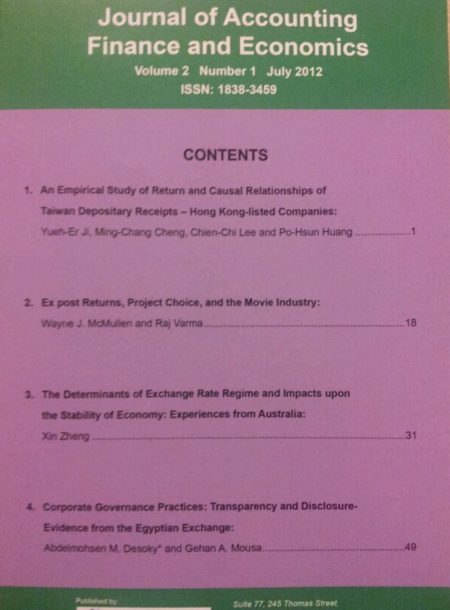Journal of Accounting, Finance and Economics
Vol. 8. No. 3., September 2018, Pages: 96-105
Does Foreign Aid Reduce Energy and Carbon Intensities in Bangladesh? An Empirical Investigation
Sakib B. Amin, Farhan Khan, Shahtaj Mahmud and Golam Samin Rahman
Foreign aid has been existing since the formation of national states.
The rich developed countries or agencies are always helping the
developing countries through different types of foreign aids. It not
only effects growth but also helps to improve different socio
economic aspects of the recipient country. The aim of this paper is
to explore the impact of foreign aid on energy consumption intensity
and carbon intensity as no studies have been conducted in this
context in Bangladesh. We used time series data from 1980 to 2015
for our empirical analysis. Johansens’s cointegration test confirms
our variables are cointegrated in the long run. We used Dynamic
Ordinary Least Square (DOLS) and Generalized Method of
Moments (GMM) to check impact of foreign aid on energy
consumption intensity and carbon intensity. According to the results
of these estimation approaches, we found that foreign aid reduces
energy consumption and carbon intensity in Bangladesh. However,
the effect on energy consumption intensity is much lower than the
effect on carbon intensity.

